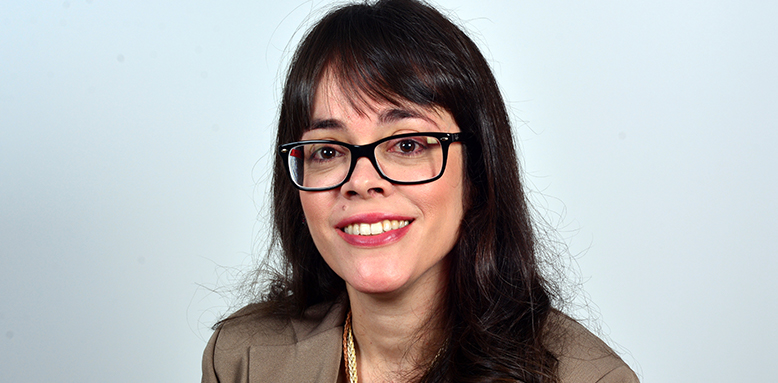
 In fall 2019, Dr. Patricia Silveira, Assistant Professor in the Department of Psychiatry at McGill University and interim Scientific Director at the Ludmer Centre for Neuroinformatics & Mental Health, was invited to join the National Scientific Council on the Developing Child as a core member. The Council, which translates scientific concepts on child development to the public and policymakers, is based out of the Harvard School of Medicine and has a North America-wide mandate. Earlier this year, the Council published its Working Paper 15, titled “Connecting the Brain to the Rest of the Body: Early Childhood Development and Lifelong Health Are Deeply Intertwined.”
In fall 2019, Dr. Patricia Silveira, Assistant Professor in the Department of Psychiatry at McGill University and interim Scientific Director at the Ludmer Centre for Neuroinformatics & Mental Health, was invited to join the National Scientific Council on the Developing Child as a core member. The Council, which translates scientific concepts on child development to the public and policymakers, is based out of the Harvard School of Medicine and has a North America-wide mandate. Earlier this year, the Council published its Working Paper 15, titled “Connecting the Brain to the Rest of the Body: Early Childhood Development and Lifelong Health Are Deeply Intertwined.”
One of only three women on the 13-member Council and the first junior faculty member, Dr. Silveira’s participation on the Council is a testament to the caliber of her research and leadership in the area of child development. Dr. Silveira recently took some time to chat with us to discuss the Council and its recent paper.
Prof. Nathan Fox, the Council’s Scientific Co-Director (with Prof. Pat Levitt), saw one of my talks at a conference in early 2019. As my research involves individual differences and the Council was starting to discuss this topic, he invited me to give a talk at the Council meeting in June 2019. My talk was followed by a live and rich discussion with this multidisciplinary group of world-renowned investigators, which was already an important accomplishment in my career. Then, the Council members voted unanimously to invite me to become a core member a few weeks after. I am very honoured to be the first junior faculty member to be offered this position.
My clinician-scientist training as well as my constant search for meaningful associations between the findings in basic Neurobiology and their application to Medicine and Child Health Promotion were the core values that I cultivated during my career: translation and knowledge mobilization happening not only from the ‘bench to the bedside’, but also from scientists to health professionals, to students, to patients, to the community and influencing practice and policy. I am glad to be able to fully experience this philosophy today at McGill and through my participation as a member of the National Scientific Council on the Developing Child.
One of the main points of this paper is to highlight that the brain and all other systems in the body interact and adapt to the environment. So the quality of the early environment affects not only the developing brain, but also other systems like the cardiovascular, immune, and metabolic systems. Therefore, supporting families with young children not only builds a strong foundation for children’s cognitive and social-emotional development, but also improves their chance for strong physical and mental health as an adult.
Early life experiences affect the development of several of the body’s systems, including the brain as well as the peripheral metabolism, establishing patterns that are difficult to change later. For example, if a pregnant woman is exposed to significant stress or poor health conditions during gestation, her developing child’s stress response and metabolic systems can be affected even into adulthood, with consequences that can lead to heart disease, diabetes but also depression and other psychopathologies. Policies and programs that provide support for pregnant women and families with young children will result in better health outcomes for adults later and save billions in health care costs.
The Council’s mandate is to translate science to build public will that transcends political partisanship and recognizes the complementary responsibilities of family, community, workplace, and government to promote child well-being. The Council generates, analyzes, and integrates scientific knowledge to educate policymakers, civic leaders, and the general public about the rapidly growing science of early childhood development and its underlying neurobiology. It produces working papers, briefs, videos, and other communication tools through a knowledge synthesis and translation process designed to overcome common barriers to understanding and applying the science. Council members frequently present the science and its implications to national, state, and community leaders, and engage with the media to help inform the public policy discourse around child and family policy.
The Council meets twice per year, but we are often in communication to exchange information and have online discussions. The meetings consist of two intense days in which we invite different experts to discuss a topic. We delve deep into that theme, and this helps us elaborate the scientific reasoning, the most appropriate terminology to translate these concepts to the public, as well as to define the content for working papers and other materials. Recently, we have been discussing the topic of heterogeneity, or how individual differences influence our health and our vulnerability/resilience to disease. This is a fascinating topic, because we know that individuals vary not only in terms of susceptibility to certain conditions, but also in their response to treatments and therapies. Therefore, understanding how to contextualize these differences in Medicine and especially in Pediatrics is essential for more effective prevention and intervention efforts.
October 22, 2020

